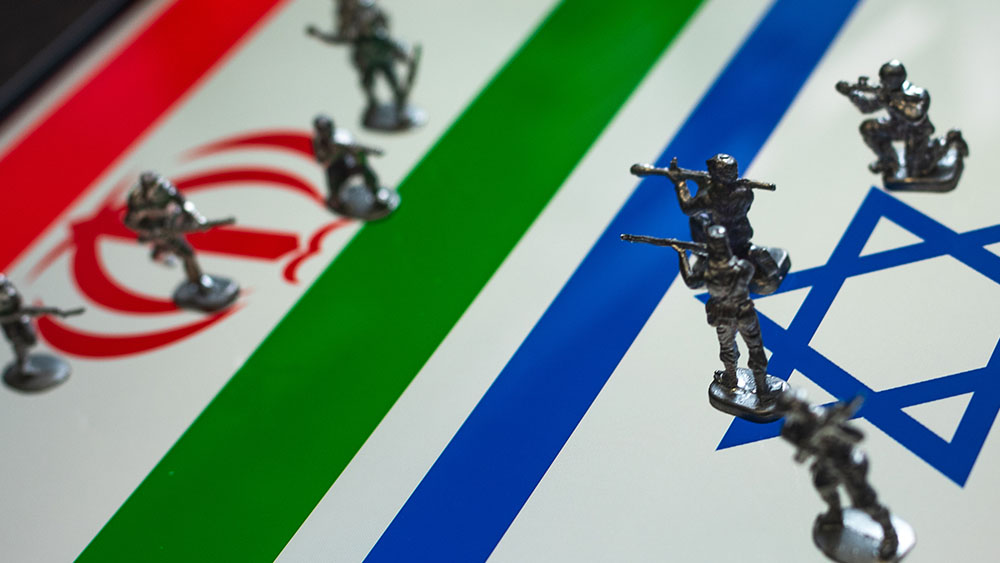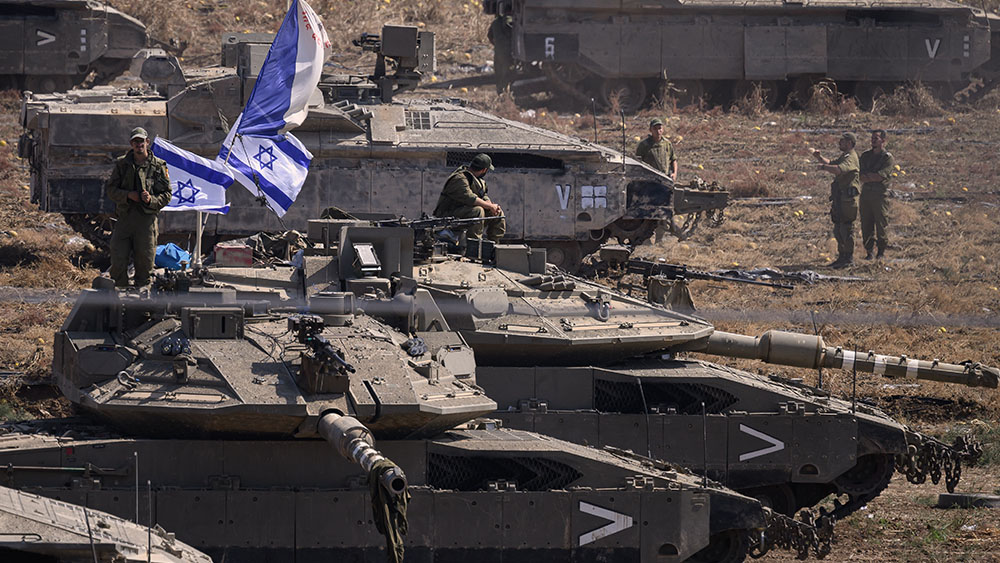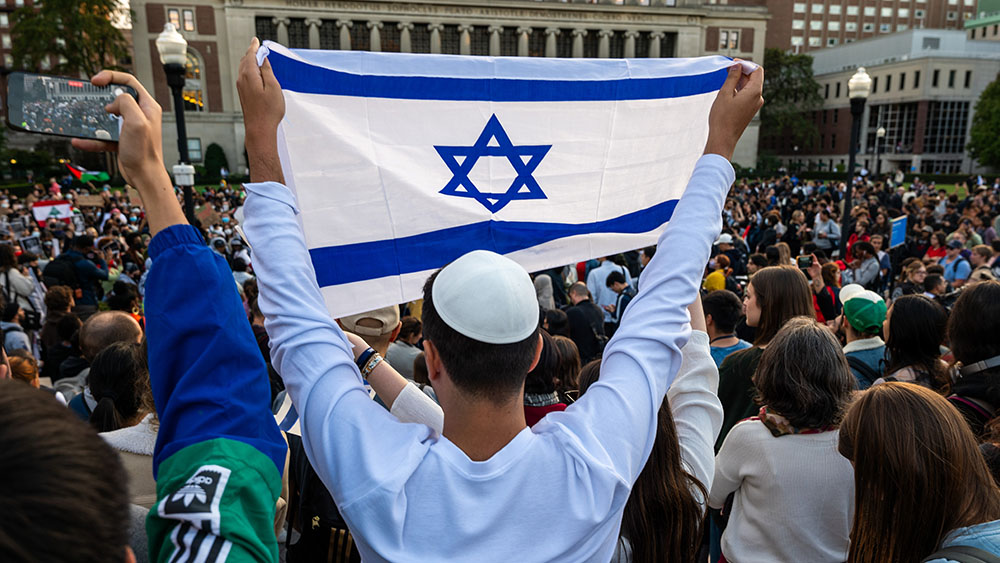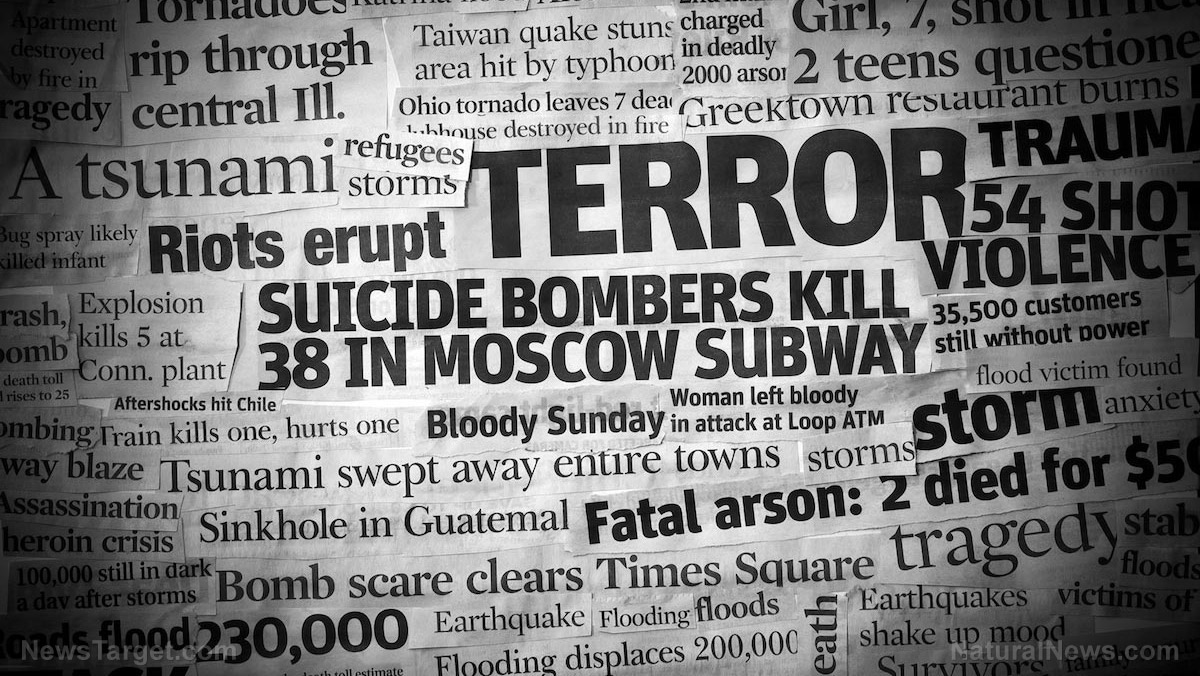Israel has attacked hundreds of humanitarian sites and aid convoys in Gaza since the war erupted
04/22/2024 / By Belle Carter
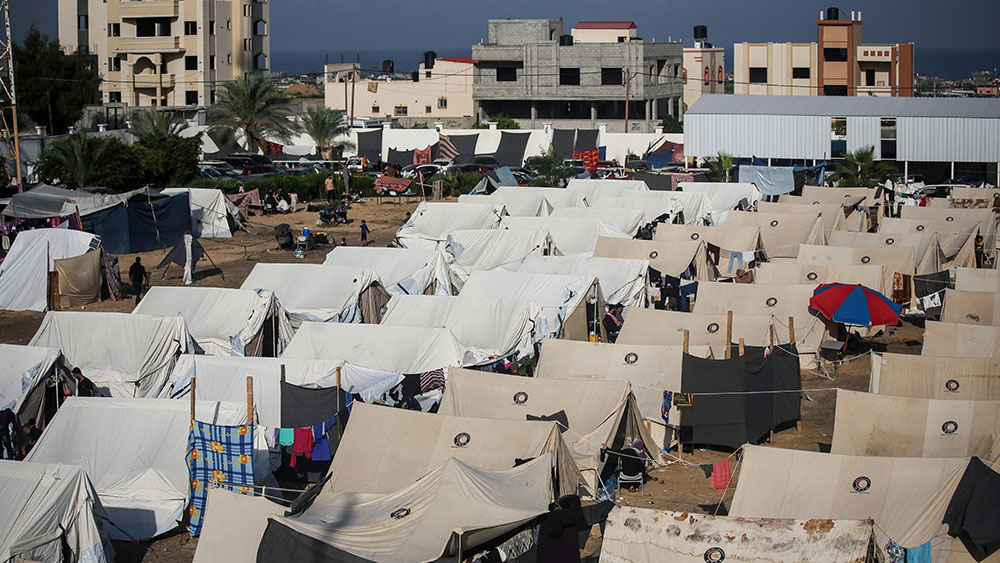
The U.K.-based news agency Middle East Eye (MEE) recently found out and reported that at least 357 humanitarian-run sites and convoys in Gaza, whose coordinates had been shared in advance with warring parties, were hit before the non-profit World Central Kitchen (WCK) attack this month.
According to a top United Nations (UN) official, “nothing substantive” has changed in the deconfliction system with Israel Defense Forces (IDF) to protect aid workers after they targeted WCK. UN officials and aid workers, who have agreed to speak anonymously, told MEE that it had been clear for months that the humanitarian notification system in Gaza was broken.
However, as it surfaced that the Israeli military killed seven aid workers, including six foreigners, in the WCK convoy on April 1, the world is now watching their flawed system, which they claim to aim to avoid dangerous misunderstandings and miscalculations based on ignorance as well as prevent accidents and conflict escalation.
Jamie McGoldrick, UN’s outgoing top aid official working in Gaza told reporters on Friday, his last day in the post, that aid organizations need a hotline to communicate directly with the Israeli military during emergencies and equipment such as two-way radios and satellite phones, items which are standard for aid workers in other conflicts, but not in Gaza where Israel fears Hamas could seize them.
“All we can do is keep pressing them for that,” McGoldrick said.
Most of the locations that were hit, 352, were locations run by the United Nations Relief and Works Agency for Palestine Refugees in the Near East (UNRWA), the largest aid organization operating in Gaza, including a food distribution center and schools sheltering thousands of civilians. MEE has counted five additional locations and convoys that were also hit, including a compound in Al-Mawasi housing staff working for the International Rescue Committee and Medical Aid for Palestine, the Gaza City offices of Doctors of the World, a Medecins Sans Frontieres (MSF) convoy in Gaza City and an MSF shelter in Al-Mawasi and an American Near East Refugee (ANERA) shelter in Deir al-Balah.
“To be frank, every single day we are discussing internally whether to leave Gaza. We should not be there,” said Brice de la Vingne, MSF’s head of the emergency unit. “The level of risk we are taking, I’ve never seen.” After the April 1 attack, WCK, which had been providing more hot meals in Gaza than the World Food Program and UNRWA combined, and Anera both suspended their operations.
“Between us we are trying to push back this famine and stop it in its tracks. But it’s a team effort,” the World Food Program told the news outlet. “It will only work if all of us can do our work and do it safely.”
Humanitarian sites and personnel, like civilians, should be protected by the international humanitarian law. Sharing coordinates with parties to a conflict does not offer any further legal protection, but it makes it easier for warring parties to steer clear of hitting these locations. At least in theory.
However, humanitarians implied that the density of Gaza, paired with the intensity of Israel’s campaign, which has seen more than 33,000 Palestinians killed, has made the already difficult process of humanitarian deconfliction extremely challenging.
“Something people don’t understand is that humanitarian organizations don’t operate inside the battlefield normally,” de la Vingne said.
Israel government claims to take action to increase humanitarian aid in the enclave while UN denies it
The state said it has opened a new crossing and improved distribution coordination with the entry of over 100 trucks for internal distribution of the aid, but the UN agency says ‘no meaningful improvement’ has been seen on the ground.
The details were provided in the framework of a petition filed by the Gisha human rights organization, arguing that the government was hindering the supply of humanitarian aid to Gaza in various ways and asking the court to order the government to allow the unfettered entry of such assistance to the territory. (Related: United Nations accuses Israel of BLOCKING humanitarian aid deliveries into Gaza Strip.)
At the moment, hundreds of thousands of Gazans are suffering from severe malnutrition and starvation. The government has contended for months that there are no limits to the amount of aid that can enter Gaza and repeated that assertion in the details it provided to the High Court on Monday in a supplementary submission, which the court had requested earlier this month.
Meanwhile, following the WCK strike, President Joe Biden’s White House reportedly warned to retract support for Israel’s Gaza campaign. However, a conflicting statement was released by National Security Spokesman John Kirby on Monday. “The aid has increased and quite dramatically in just the last few days,” Kirby said in an interview with MSNBC. “That’s important, but it has to be sustained.” About 100 trucks have entered the enclave in the last 24 hours alone, Kirby added, bringing the total to 2,000 aid deliveries by truck since the conflict began.
Visit Humanitarian.news and read more about the current conditions of civilians in Gaza.
Watch the video below that talks about UAE aid being distributed to displaced families living in tents.
This video is from the alltheworldsastage channel on Brighteon.com.
More related stories:
Qatar, France broker deal to allow more humanitarian aid to enter Gaza.
World outraged as Israeli airstrike KILLS 7 multinational aid workers in Gaza.
Sources include:
Submit a correction >>
Tagged Under:
aid convoys, Al-Mawasi, attacks, chaos, civilians, Collapse, food distribution centers, Gaza, genocide, government debt, Hamas, Holy War, humanitarian, humanitarian sites, Israel, Israel-Gaza war, Israeli military, Jack Lew, Joe Biden, Middle East, UN, UNRWA, violence, WCK, White House, World Central Kitchen, World Food Program, WWIII, Yoav Gallant
This article may contain statements that reflect the opinion of the author
RECENT NEWS & ARTICLES
COPYRIGHT © 2017 TERRORISM NEWS

